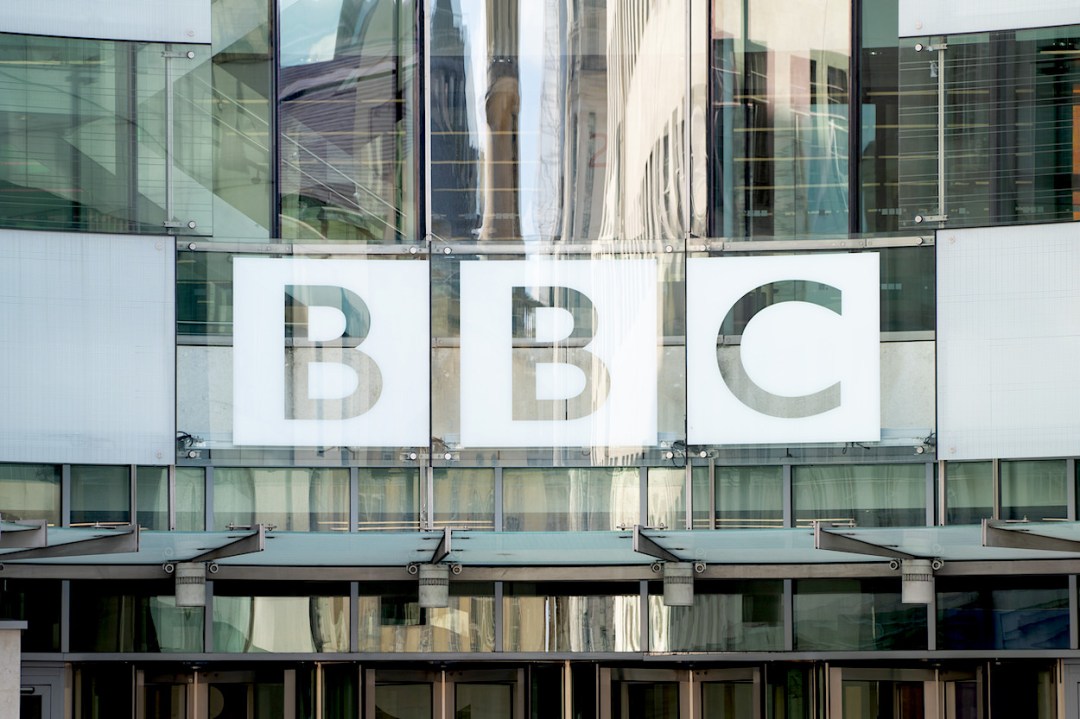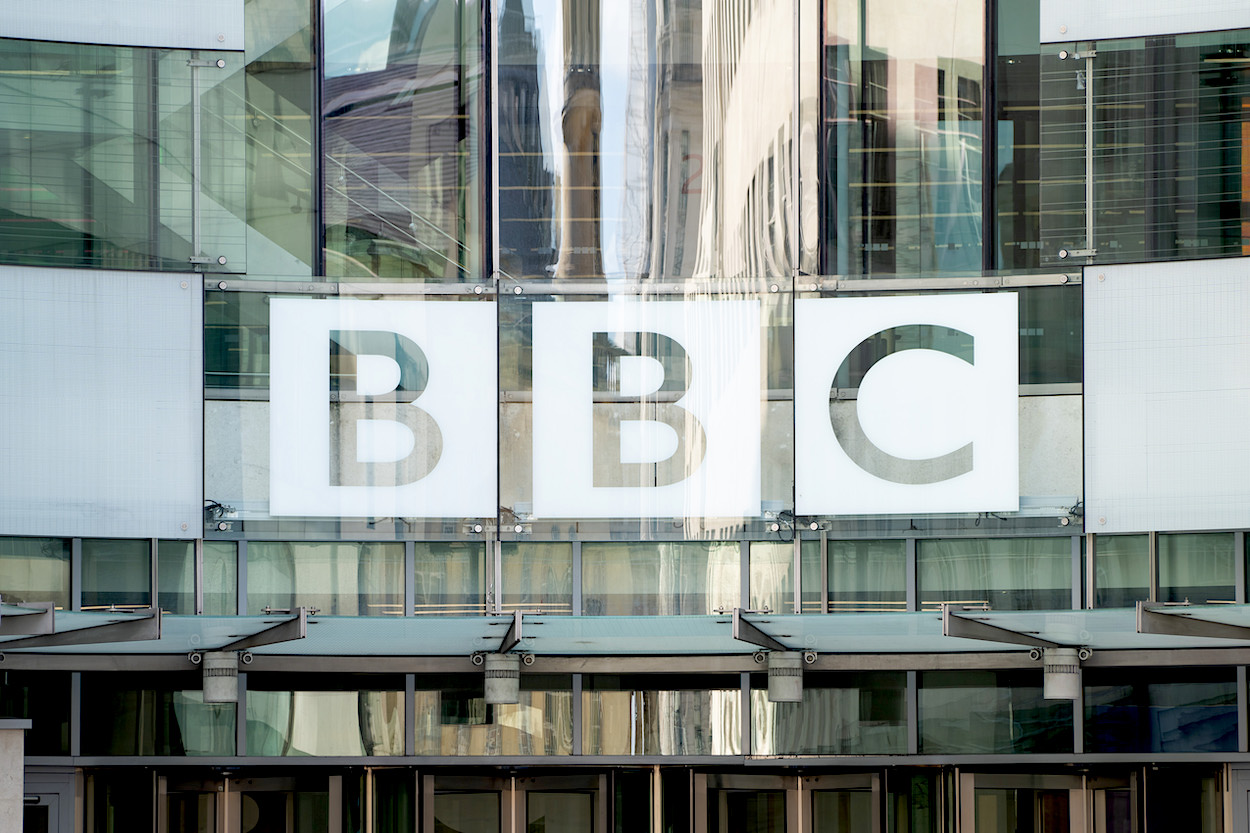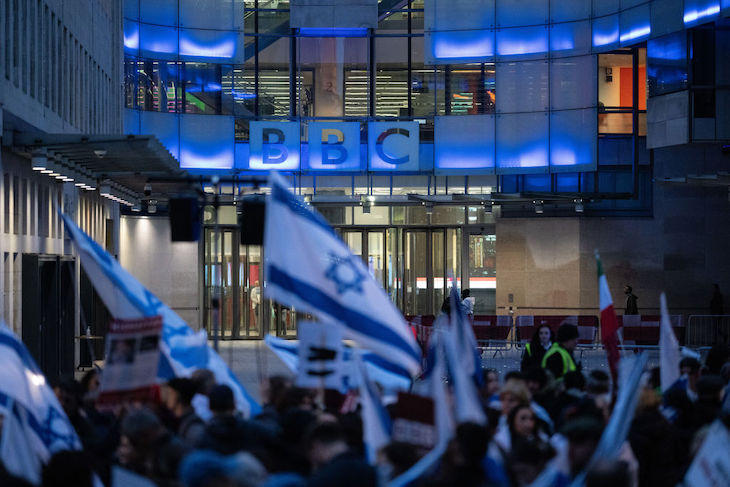Readers who woke to Radio 4’s Today programme at around 6:30 a.m. can be forgiven for leaping out of bed in alarm. ‘There has been a coup at the BBC!’ cried presenter Nick Robinson, or words to that effect. Clearly, as we lay snoozing, a hostile takeover of our state broadcaster was underway. ‘These are not,’ Robinson informed us, ‘normal times’. Indeed, they are not.
His monologue began:
The boss of the organisation which remains, despite all the rows about bias, the most trusted news organisation in the country – perhaps also across the globe – has quit, along with the head of news, after a row in which the President of the United States denounced what he called ‘doctoring’ of what he had said in a speech featured on a BBC Panorama programme.
Remove the caveats, and this is a bizarre statement. Robinson can sneer all he likes, but Trump was not wrong to call the manipulative editing of his speech ‘doctoring’. It was doctoring. What aired was inaccurate. The BBC deceived viewers. But rather than fessing up to having made mistakes, Robinson continued to describe what was going on by quoting the views of ‘one source’, who described the fallout since the Telegraph published a leaked memo by Michael Prescott as ‘armed combat’, ‘political interference’ and ‘a hostile takeover’.
Robinson continued: government appointees; politically motivated bad actors; and a man called Robbie Gibb. His argument seemed to be that some directors wanted to admit to errors but not institutional bias. But the board’s political appointees refused to sign off on this statement, and this pushed the BBC into crisis. But I struggled to keep up. The more animated Robinson became about the coup at the Beeb, the more my mind constructed images of tanks trundling from Oxford Circus to Broadcasting House.
Robinson is far from alone in summoning up the spectre of hostile forces. ‘The BBC is facing a coordinated, politically motivated attack’, read a headline in the BBC house journal, the Guardian. While a leader column in the Observer soberly noted that ‘The corporation has been ambushed.’ The war-like rhetoric continued on social media. Veteran journalist John Simpson declared on X that ‘Tim Davie was one of the best [Director Generals] the BBC has had, and Deborah Turness was a brilliant head of news. Only the BBC’s enemies could possibly be glad they’ve resigned.’ While former newspaper editor turned Radio 4 presenter David Yelland claimed: ‘The fall of Tim Davie is a victory for populists, for a cabal of toxic plotters with links to the BBC board – who designed and executed a coup – and the circular firing squad in the UK press. It is not a good day for our values or our country.’
All this talk of enemies, plotters, firing squads, and ambushes is unhinged. The BBC is supposed to be above peddling conspiracy theories. Yet senior journalists – the sort who pride themselves on being centrists, sensibles and the adults in the room – have collectively decided to don tin foil hats and cry about a coup simply because a couple of their best mates have had to fall on their swords.
The language of plots and coups is unhinged because it so completely inverts the reality of what has actually happened. Rather than confronting the corporation’s mistakes, its defenders see only enemies desperate to bring down their beloved institution. Instead of reckoning with the charges of bias and misinformation, senior figures at the BBC have decided to turn their fire on those levelling the accusations. Rather than critically examining the network’s coverage of Trump’s presidency, the conflict in Gaza, gender and climate change, their aim seems to be to portray the BBC as not having sinned, but being sinned against. By crying about a coup, the BBC, incredibly, makes itself the victim of the story.
The beauty of this sleight of hand is that we can now safely forget about the women who were erased as the BBC used female pronouns for rapists, and filed story after story about chest-feeding transwomen and drag queens suffering in the cost of living crisis. We can forget about the Jews who suffered anti-Semitic abuse when the suffering of Gazans, and only rarely Israelis, hit the headlines and chants of ‘Death to the IDF!’ at Glastonbury were broadcast to the world. And we can forget, too, about the frustration of the misled and misinformed viewers.
Instead, we must think of the real victims in this sorry saga: the salaried BBC journalists made to suffer at the hands of populists, plotters and assorted other enemies. I would find it funny if only my licence fee wasn’t paying their wages.









Comments